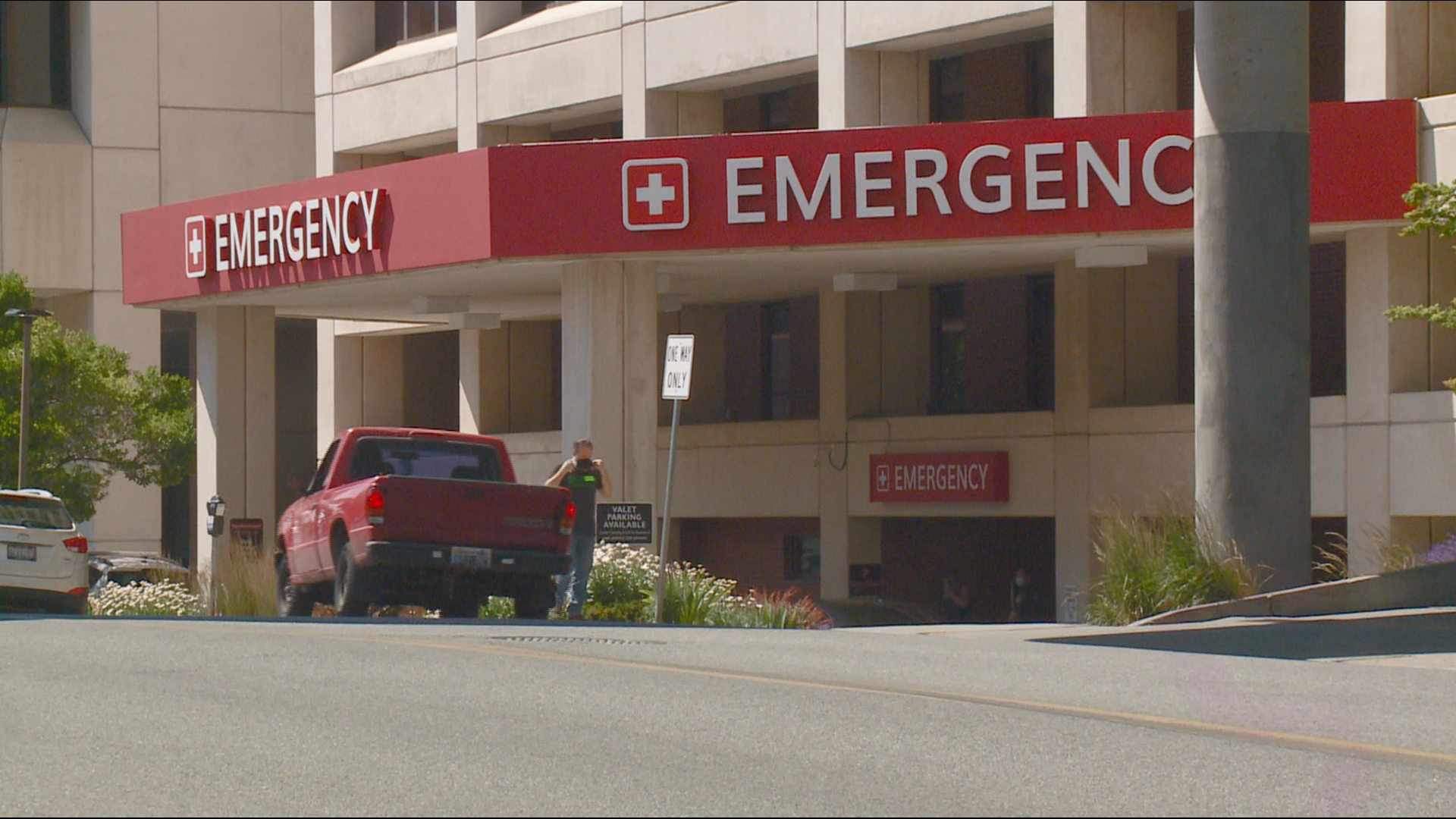SPOKANE, Wash. — Record-shattering temperatures in Spokane have proven, as expected, to be dangerous. Medical personnel have reported significant spikes in calls and emergency room visits this week.
The heat is a risk to people across demographic groups, and will remain dangerous even as it dips below triple digits.
As of Friday morning, the county medical examiner suspected 11 people had died from heat-related causes, though said autopsies needed to be completed to be certain.
"It’s certainly disappointing, but honestly with a population as large as ours – well over 500,000 in Spokane County – that number is not necessarily a surprise," said Spokane Fire Chief Brian Schaeffer. "We knew that this heat wave was going to have profound impacts."
Schaeffer says the call volume has doubled in recent days, and firefighters have had to resuscitate dozens of people.
"We often find these people unconscious. They may be in respiratory distress or arrest, or they may be in cardiac arrest. And that’s happened a lot. We have been very busy with people past that heat exhaustion stage," he said. "All of those are occurring probably around 40 or 50 times a day in the city of Spokane. Everything that we’re seeing out there from a medical perspective at some point has a connection, the majority of them, with the level of heat that we’ve had in the last couple of days."
Hospitals are also seeing an uptick in heat-related issues.
"We’ve been very busy and it’s not been COVID related," said Greg Repetti, President of Multicare Deaconess and Multicare Spokane Valley Hospitals. "We’re seeing everything. We’re seeing people that have heat stroke – and those are the worst cases – or heat exhaustion. A lot of people coming in for fluids; they’ve been outside too long, they need an IV."
Both Schaeffer and Repetti said the heat has proven dangerous to all age groups.
"We’re not seeing as many really elderly people as we might have thought," said Repetti. "I think it’s because people are heeding the warnings, they’re watching the news, and they’re saying ‘it’s too hot, I’m going to stay inside.’ We’ve seen a lot of younger people – 40s, 50s, even a little bit less than that – who are still going about their normal day, and it affects everybody."
Repetti says it's the most dangerous summer he's seen in Spokane.
"We haven’t seen this in the Inland Northwest. I’ve been here for 11 years and this is the worst it’s been," he said. "We’re not used to it, and so people have this false sense of security that they can do whatever they want to do."
In addition to strenuous activity and dehydration, factors making heat especially dangerous include other medical conditions, certain medicines, and a lack of air conditioning.
"[One problem is] a lack of ventilation as a whole in many of our older buildings, and many of our buildings where people reside that may not simply have the financial means to have access to window units. They’re relying on fans," said Schaeffer.
Schaeffer says right now it's too early to tell for sure if the heat is disproportionately causing emergencies with poorer people, but it's something he intends to track closely.
"We owe the people that are most vulnerable, that are at risk, we owe them to look into the data and try to do everything we can to leverage the resources that are in the community to prevent it from occurring again," he said.

